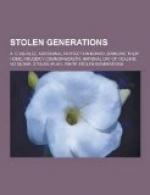|
This section contains 2,000 words (approx. 7 pages at 300 words per page) |

|
The Rejection of Cultural Myths in Texts
Summary: Essay discusses how all texts uncritically accept the cultural myths of the period, (eg. Racial stereotypes, class divisions, gender constructions, etc.). The references used are the play "No Sugar" by Jack Davis the poem "Monday" by Gwen Harwood.
Cultural myths arise out of the dominant ideas and beliefs of society, consisting of stereotypes people believe to be true. I do not agree that all texts uncritically accept the cultural myths of their period, because texts must reject these myths in order to comment about invalid or unfair stereotypes. The social realist play No Sugar by Aboriginal playwright Jack Davis, and Gwen Harwood's poem "Monday," reject and criticize some of Australia's cultural myths of the twentieth century. No Sugar was written in 1986, a time when it was generally believed that Aborigines were dim-witted, lazy, aggressive, without culture and with dysfunctional families. It was also believed that women should not have power over men. This play was set in the early 1900's, a time when these cultural myths were strongly felt, and so the myths are easily exposed to the audience. They are rejected by Davis' use of...
|
This section contains 2,000 words (approx. 7 pages at 300 words per page) |

|


